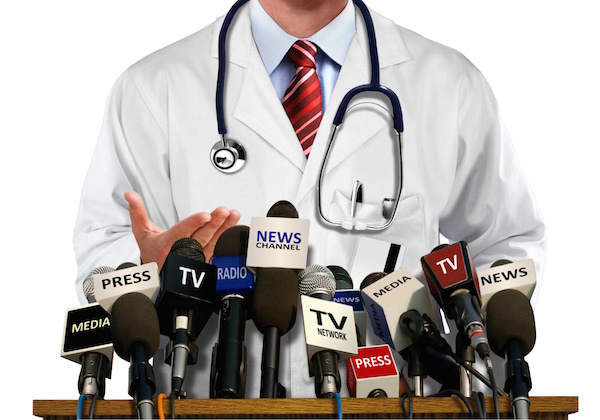
Here are some of the latest health and medical news developments, compiled by the editors of HealthDay:
Most Uninsured in U.S. Can’t Pay Hospital Bills, Report Finds
Few of the roughly 50 million Americans without health insurance have the financial means to pay potential hospital bills, according to a U.S. government report released Tuesday.
Uninsured families, on average, can only pay for about 12 percent of their hospital stays, said the report from the Department of Health and Human Services. And even uninsured families with higher incomes lack the assets to cover most potential hospitalizations.
HHS Secretary Kathleen Sebelius said it’s a myth that Americans without health insurance can get care with little or no problem. “Nothing could be farther from the truth. The result is families going without care — or facing health-care bills they can’t hope to pay,” she said in an agency news release.
More than half of the hospital stays in the United States result in bills higher than $10,000, yet the nation’s uninsured have median financial assets of only $20. The result is that 95 percent of hospitalizations bills for the uninsured are not paid in full, the report said.
The report indicates that “‘lacking health insurance poses a greater risk of financial catastrophe than lacking car insurance or homeowners insurance,” the authors wrote.
“When the uninsured cannot afford the care they receive, that cost must be absorbed by other payers,” Sebelius said in the news release. “This is why expanding access to affordable health insurance under the Affordable Care Act is so important.”
—–
Popular Football Helmets May Not Protect Against Concussion
Two models of football helmets popular with teen players may not provide adequate protection against concussion, according to researchers.
Using a new test designed to estimate concussion risk, the Virginia Tech group assessed helmets designed for players of high school age and older. The lowest ranked models were the Adams A2000 and the Riddell VSR-4, which was recently discontinued but is worn by about 75,000 high school and college players, The New York Times reported.
The results, to be posted on a Virginia Tech website, would be the first publicly available impartial data on football helmet performance. Currently, the only standardized test for helmets focuses on the risk of skull fracture, not a less serious injury such as concussion. The test is supervised by a group that includes manufacturers.
“Currently, if you go to buy a helmet, all you’re looking at are aesthetics and price, and whatever the manufacturer tells you to try to convince you it’s good,” Stefan Duma, Virginia Techs lead biomedical engineer on the project, told the Times. “We wanted to develop a system to quantify which helmets perform better specifically with risk of concussion.”
—–
Patient Says Full Face Transplant Feels Natural
At his first public appearance, the first U.S. recipient of a full face transplant said it “feels natural.”
Dallas Wiens, 25, received a new nose, lips, skin, muscle and nerves during a 15-hour procedure in March. The resident of Fort Worth, Texas had suffered severe facial injuries in November 2008 when he hit a power line while painting a church, the Associated Press reported.
In his appearance Monday at Brigham and Women’s Hospital in Boston, Wiens said the first thing his young daughter told him after the transplant was “Daddy, you’re so handsome.”
Wiens was left blind as a result of his accident and the transplant did not restore his sight, the AP reported.
His operation was paid for by the U.S. military, which wants to find ways to help soldiers who suffer major facial wounds. The Department of Defense gave Brigham and Women’s a $3.4 million research grant for five face transplants.

